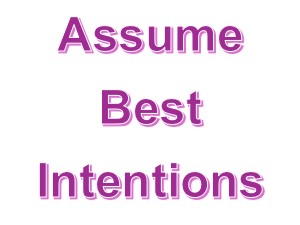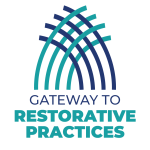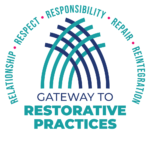From My RP Coach Ahija
During my eight one-hour Zoom meetings with my RP coach Ahija, she said many powerful statements. My favorite was, “Assume best intentions.” Several others are listed below.

- “I’m noticing . . . “
- “Clarity is kindness. It is authentic.”
- “Remember to celebrate! Start small.”
- “Do a gratitude circle!”1
I like each of these phrases but today I’m focusing on “assume best intentions.”
Assume Best Intentions
Todd Cohen, CSP, Keynote Speaker from The Sales Culture Architect shares his definition. “Assuming positive intent means believing the person you are interacting with has good intentions, even if their words or actions may seem harmful or hurtful. It involves giving the benefit of the doubt and refraining from immediately jumping to negative conclusions about their motive.”2
“Start with an assumption of best intentions to build trust and create or maintain positive relationships,”3 says Brent Cudly, Reflective Leadership Built by Habits. He adds, “Assuming positive intent is a choice, and it may not always be an easy one. You have to be intentional and present.”
Cudly adds, “By assuming the best intentions, you need to listen which builds trust. You then become less likely to hurt the relationship by lecturing someone without all the information or making people feel that they can’t be trusted.”3
Lead with curiosity, not judgement
HR Consultant Paola (Paula) Liverani Brooks offers another perspective. She believes, “Lead with Curiosity, Not Judgment.”4 She discovered that leaders who assume positive intent and ask more questions build more engaged and stronger teams. Here are some questions Brooks uses.
- “I wonder what’s going on for them?”
- “Is there a way I can help?”
- “Do I have all the information I need before making a judgment?”
Numerous blogs and articles noted the challenges of assuming best intentions. Some are concerned that the person will take advantage or manipulate you while others noted a lack of trustworthiness.
Cudley offers a positive perspective. “…I don’t mean to blindly believe that nobody ever has bad intentions. Rather, it is easier to assume the best intentions initially. If the person you are communicating with later proves to be untrustworthy, then clearly you change your approach.”3
Not everyone has experienced positive results by assuming best intentions and offers a different perspective. In a summary of the article, The Problem with “Assume Best Intentions,” the unidentified author said, “A group norm like ‘assume best intentions,’ where no attention is paid to impact, does exactly that– it offers a way to excuse problematic behavior.”
The source included “The Greater Us” so I viewed the webpage further. I was shocked to discover this tagline. “Consulting, coaching, & education for organizational culture change through a trauma-informed lens.” I thought a consulting organization would offer a optimistic perspective, but they’ve worked with others who excuse problematic behavior. I skimmed a few blogs from “The Greater Us” and found others insightful with a more positive slant.
Perhaps Ahija said it best.
For Everyone We Come Alongside “Assume Best Intentions.”
Sources
- Personal notes from Zoom meetings with Ahija Moore between August 5 and December 23, 2024. National Restorative Coaching Program.
- 2023. Can you Assume Positive Intent? Todd Cohen, CSP. April 10. https://linkedin.com/pulse/can-you-assume-positive-intent-todd/
- 2021. ABCs of Leadership: Assume Best Intentions. Brent Cudly, Reflective Leadership Built by Habits, June 6 https://bcudly.medium.com/abcs-of-leadership-assume-best-intentions-9327136e0f68
- 2025. How Assuming Best Intentions Can Transform Your Mindset and Worksplace. Paola (Paula) Liverani Brooks, February 3. https://www.linkedin.com/pulse/how-assuming-best-intentions-can-transform-your-liverani-brooks-qk9sc/
- 2020. The Problem with “Assume Best Intentions” The Greater Us, August 4, updated Sept 25, 2024. https://wwww.thegreaterus.com/post/the-problem-with-assume-best-intentions

